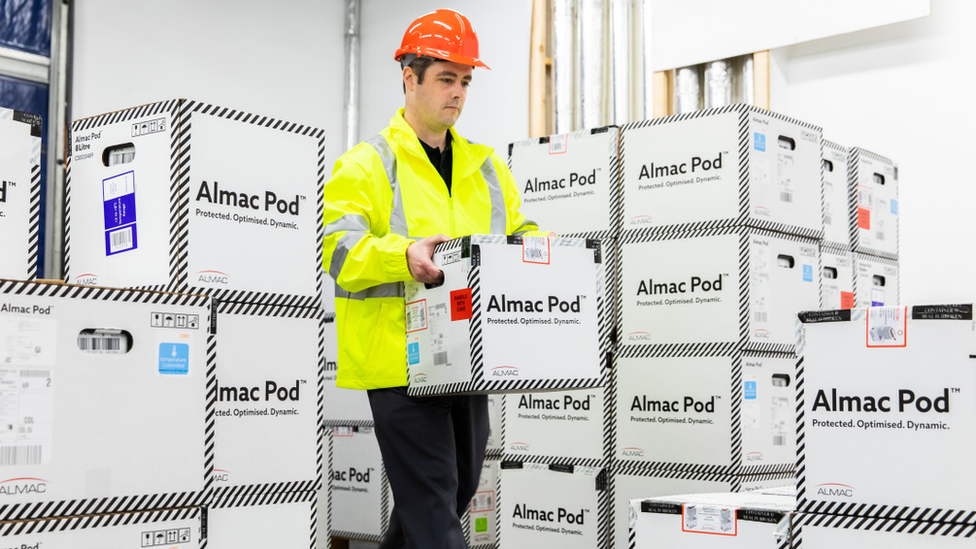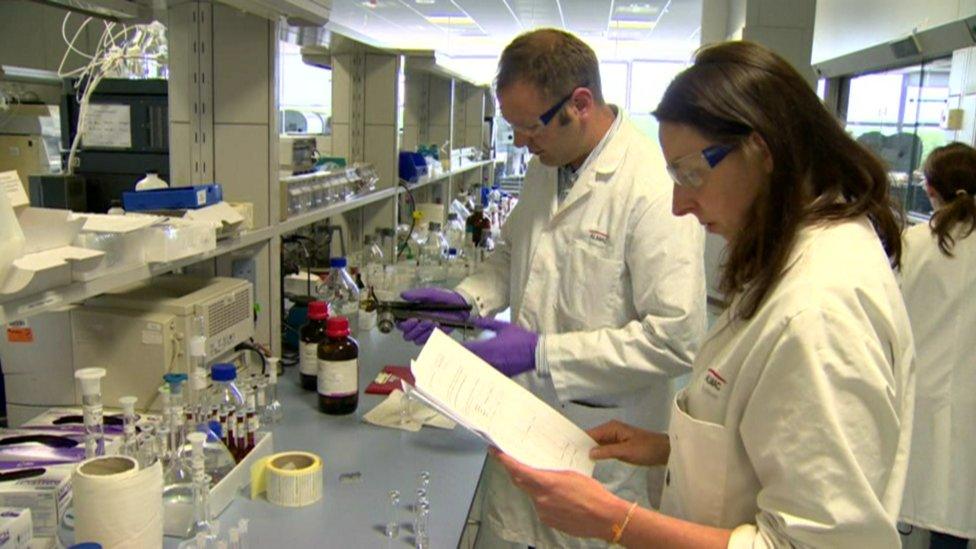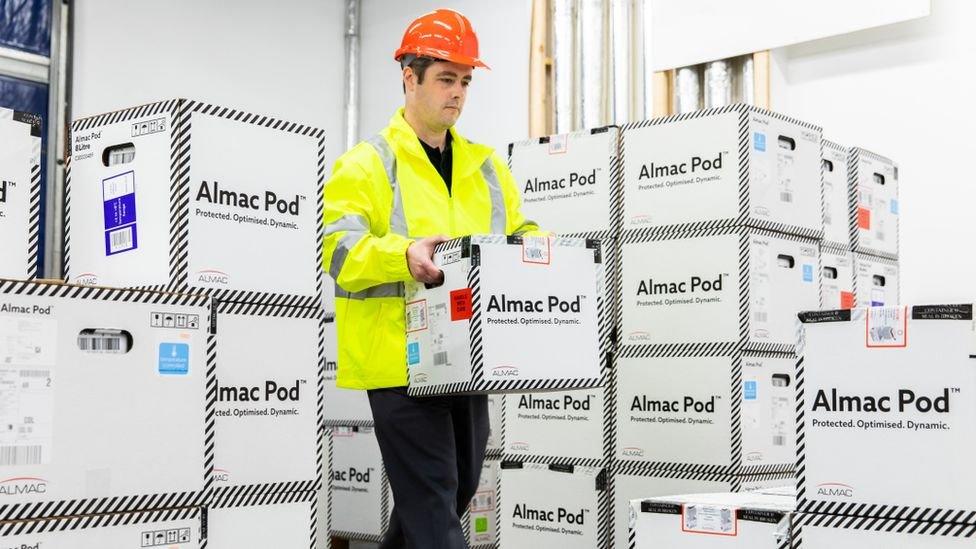Almac: Northern Ireland pharma firm plans 1,000 new jobs in NI
- Published

Almac provided clinical trials support to BioNTech as it tested its Covid-19 vaccine
Northern Ireland-based pharmaceutical company Almac has said it intends to create 1,800 jobs over the next three years.
More than 1,000 of those will be at its Northern Ireland facilities.
Almac, which develops its own drugs, is one of Northern Ireland's largest employers, with about 6,000 people across its global operations.
A major part of its business is manufacturing and conducting tests for big global firms.
Last year the firm, based in Craigavon, County Armagh, played a role in the clinical trials of the first effective Covid-19 vaccine created by Pfizer and BioNTech.

Almac had a strong financial performance last year, with pre-tax profit up by 33%
The firm's clinical services division provided clinical trials support to BioNTech in areas like distribution, labelling and temperature management.
Alan Armstrong, Almac Group chief executive said: "As demand for our services steadily increases, our aim is to continue to grow our global team by actively recruiting 1,800 new individuals across a wide variety of diverse and exciting areas."
The new jobs include operational, supervisory and managerial roles.

Analysis: Ownership keeps firm close to NI roots
Almac is one of Northern Ireland's few truly global success stories.
A large part of that is down to the drive and vision of the firm's late founder Sir Allen McClay.
His legacy lives on in the form of the firm's unusual ownership arrangement- it is controlled by the McClay Foundation charitable trust.
That structure means the firm has to constantly reinvest its profits and is also protected from takeover - keeping it close to its Northern Ireland roots.

Aside from its operations in Northern Ireland, Almac also has major facilities in the Republic of Ireland, England and the US.
In 2020, it increased its pre-tax profit by 33% to £63.5m, saying performance had been boosted by licence payments from products developed in-house.
Turnover increased by 6% from £634m to £677m.
Related topics
- Published7 June 2021

- Published2 June 2021

- Published11 November 2020
